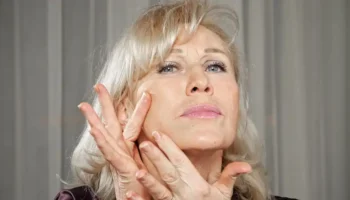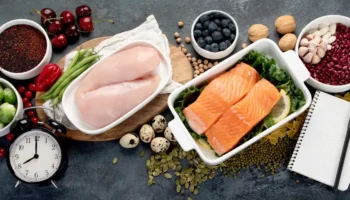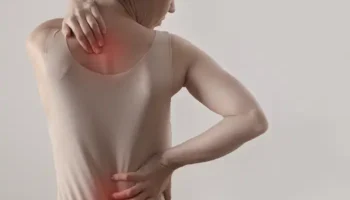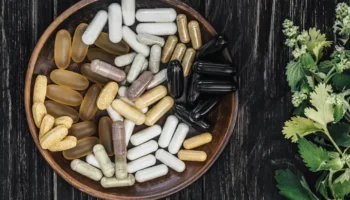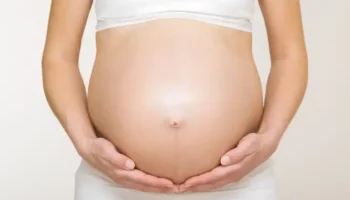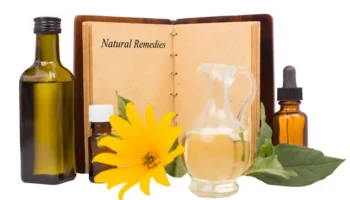Are you noticing more hair on your brush or finding that your once thick, full hair now feels thinner and more fragile? If you’re in your 40s and navigating the changes of pre-menopause, you’re not alone. Hair loss and thinning can be frustrating, but there are ways to help restore your confidence and improve hair health.
From understanding the underlying causes to making lifestyle changes and exploring natural remedies, this guide will help you manage hair loss during pre-menopause.
What Causes Hair Loss During Pre-Menopause?
During pre-menopause, your body undergoes significant hormonal changes that can contribute to hair loss and thinning. Hormonal fluctuations, nutritional deficiencies, and lifestyle factors all play a role in how your hair looks and feels. Here are the most common causes of hair thinning during pre-menopause:
- Hormonal Changes and Fluctuations
As estrogen and progesterone levels decline during pre-menopause, hair growth slows, and hair becomes thinner, weaker, and more prone to shedding. These hormones are essential for maintaining healthy hair growth cycles, so their reduction can lead to noticeable thinning. - Increased Androgens (Male Hormones)
When estrogen levels drop, androgens (male hormones) can rise. This hormonal imbalance can cause hair thinning, especially around the crown and temples. In some cases, it may also lead to increased facial hair. - Thyroid Imbalance
Thyroid issues, such as hypothyroidism, are more common during pre-menopause. Thyroid hormones regulate hair growth, and any imbalance can lead to thinning hair, fatigue, and other symptoms. - Nutritional Deficiencies
What you eat plays a crucial role in hair health. Deficiencies in essential vitamins and minerals can cause hair to thin or fall out. Key nutrients that support healthy hair include:
Iron: Helps deliver oxygen to hair follicles.
Biotin: Vital for strong and healthy hair.
Zinc: Supports hair follicle health.
Protein: Essential for keratin production, which makes up the structure of hair.
Foods to Support Healthy Hair Growth During Pre-Menopause
To combat hair loss and thinning, focus on incorporating nutrient-rich foods into your diet. Here are the best foods to support hair health and combat pre-menopause hair loss:
Leafy Greens: Spinach, kale, and Swiss chard are rich in iron, folate, and vitamins that support healthy hair growth.
Nuts and Seeds: Almonds, walnuts, and sunflower seeds are excellent sources of biotin, zinc, and healthy fats.
Eggs: Packed with protein, biotin, and iron, eggs help support strong, healthy hair.
Fatty Fish: Salmon, mackerel, and sardines contain omega-3 fatty acids, which improve scalp health and promote hair growth.
Legumes: Lentils, chickpeas, and beans are rich in protein, iron, and zinc, which contribute to stronger hair.
Citrus Fruits: Vitamin C helps with iron absorption and collagen production, which strengthens hair.
Incorporating these foods into your daily meals will provide your body with the nutrients it needs to combat hair thinning during pre-menopause.
Using natural oils is a popular and effective method to support hair growth and restore volume. After trying a combination of oils, here are the results I experienced:
How I Used the Oils
I applied castor oil, rosemary oil, and botana oil three times a week, typically before bedtime. To avoid oil stains on my pillow, I wrapped a bandage around my head. Since the oils are thick, I also wore a hat if I needed to go outside.
The Benefits of Using Natural Oils
New Hair Growth: After using the oils consistently, I noticed new hair growth, which significantly improved the thickness and overall appearance of my hair.
Increased Volume: My hair looks fuller and feels more voluminous.
Shine and Strength: The oils gave my hair a healthy shine and added strength, reducing breakage.
Affordable: These oils are cost-effective and widely available.
Why These Oils Work
Castor Oil: Rich in ricinoleic acid, castor oil enhances scalp circulation, promotes hair growth, and moisturizes the scalp, reducing dandruff.
Rosemary Oil: Known to improve circulation, rosemary oil strengthens hair follicles and may help prevent hair thinning. A 2015 study found it to be as effective as minoxidil in treating hair loss.
Botana Oil: Botana oil provides deep hydration and nourishment to the scalp, promoting stronger, healthier hair.
These oils work together to improve hair health and stimulate growth, making them a natural and affordable option for pre-menopause hair thinning.
Additional Tips for Healthy Hair During Pre-Menopause
In addition to using natural oils and eating a nutrient-rich diet, here are a few more tips to promote healthy hair growth during pre-menopause:
- Stay Hydrated
Drinking plenty of water helps keep your scalp hydrated and supports overall hair health. - Manage Stress
High stress levels can contribute to hair loss. Try relaxation techniques like yoga, meditation, or deep breathing to manage stress. - Use Gentle Hair Products
Avoid harsh shampoos and treatments that strip hair of its natural oils. Choose sulfate-free and hydrating products for better results. - Limit Heat Styling
Excessive use of hot styling tools can weaken hair and lead to breakage. Limit the use of flat irons, curling irons, and blow dryers. - Get Regular Trims
Regular trims help prevent split ends and keep your hair looking healthy and fresh. - Protect Your Hair from the Sun
Wear a hat or use UV-protectant hair sprays to shield your hair from sun damage.
Final Thoughts on Hair Loss During Pre-Menopause
If you’re experiencing hair thinning or loss during pre-menopause, you’re not alone. Hormonal fluctuations, nutritional deficiencies, and lifestyle changes can all play a role. However, by addressing these factors with dietary changes, natural remedies like oils, and proper hair care practices, you can improve the health and volume of your hair.
Disclaimer
The information provided in this article is for informational purposes only and should not be considered medical, professional, or legal advice. Always consult with a healthcare provider before starting any new treatments or making significant changes to your routine.


